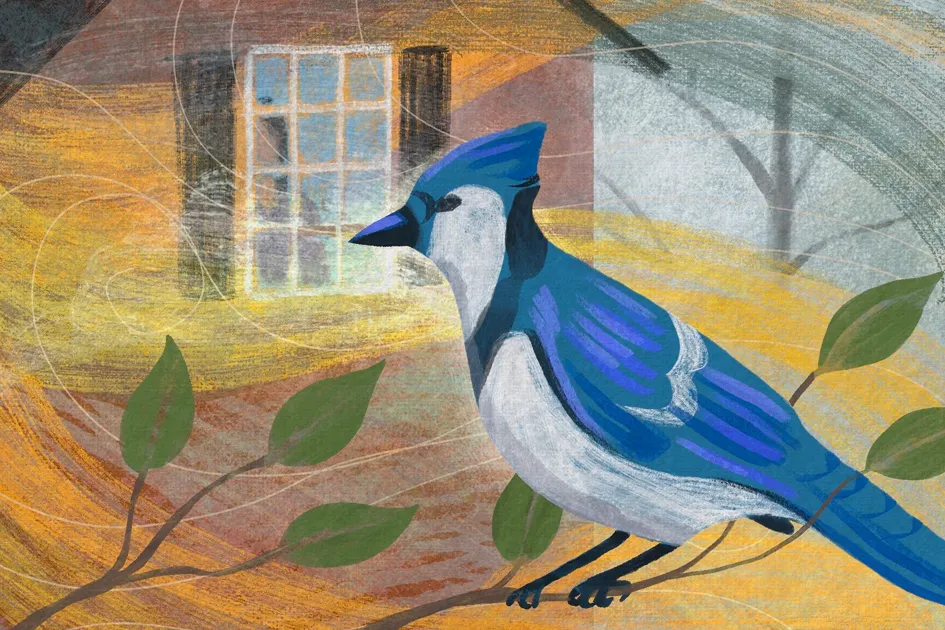Life can be difficult—dastardly, even. Without a moment’s notice, we can be blindsided by sorrow. And faith in God grants “crisis immunity” to no one. A friend calls and asks if we can get together. Sometimes the reason for such a call is good news: A big promotion came through, a baby’s on the way, a wayward son or daughter has gotten back on track, or medical tests came back negative. Mostly, however, people call looking for some hope, consolation, or guidance, due to the overwhelming burden of life’s sorrows.
There was a time when the driving force behind my hurried and worried, frenzied and frantic pace was an effort to pursue pleasure and evade sorrow. A lifetime of happiness and freedom from heartache is what initially attracted me to Jesus. After all, He did promise, “I came that they may have life, and have it abundantly” (John 10:10). Yet the life Jesus came to give is greater than we could ever hope for or imagine—God in our hearts.

A Necessary Pain
The radical way that Jesus lived was a demonstration of the subversive truth He taught—that life doesn’t have to be devoid of sorrow to be full of joy. In fact, joy is often hidden in the midst of sorrow; the two are inescapably intertwined. Abundant life oftentimes finds its beginnings in adversity.
Jesus says, “Unless a grain of wheat falls into the earth and dies, it remains alone; but if it dies, it bears much fruit. He who loves his life loses it, and he who hates his life in this world will keep it to life eternal” (John 12:24-25). If grapes and grain are not crushed, there can be no wine and bread. If our life is not broken, there will not be the most intimate communion with God.
Jesus’ teachings regarding joy and sorrow became an “extreme makeover” of sorts for me and required the painful stripping away of illusions. During this season, one of the most influential people in my life helped me begin to understand that God’s love is so great He doesn’t allow us to live in delusions, no matter how attached we are to them. As my friend was fond of saying, “It’s better to live naked in truth than clothed in fantasy.” Little by little, I found myself experiencing the kind of joy that naturally comes when you know you are loved unconditionally and nothing you gain or lose can take from you what’s deeply rooted in your heart.
Modern-Day Heroes
One evening some time ago, a friend and I attended a basketball game, and afterward we couldn’t help noticing a group of people, young and old, clamoring for autographs from several players who were leaving the arena. These modern-day supermen were top-tier professionals with physical strength, athletic ability, and large salaries, but they nonetheless fell far below my standard for heroes.
For the next several days, I pondered the question, Who are my heroes, and what are my criteria? I realized my heroes are those whose faith has not protected them from crises and crushing sorrow. They are men and women who know that any god who guarantees protection from struggles and burdens, while assuring the fulfillment of all their desires, is a quack whose treatments only worsen the disease. They know they instead have a God who loves them so intensely that there is no sorrowful experience where He will not willingly meet them and embrace them with tender loving care.
If grapes and grain are not crushed, there can be no wine and bread. If our life is not broken, there will not be the most intimate communion with God.
For instance, there’s Dale, who told me a few weeks before he died, “God has given me a great life, one that I prefer to measure by its depth and quality rather than its duration. I’ve had my share of difficulties and challenges, and it appears the last may be to die in a manner that never causes my sons to wonder whether God is kind and good.” Now that’s heroic.
Then there’s Geran, who described what happened immediately after he was diagnosed with ALS: “I was overcome with the deepest sense of anguish that I’ve ever experienced.” Crying out to God, he asked, “Why?” And within moments God responded, “Had any other condition been better for you than the one in which you find yourself, divine love would have put you there.” Then Geran declared, “The answer to the question ‘Why?’ was apparent, and I haven’t been compelled to ask it again. What wasn’t immediately apparent was how God would give me the strength to persevere as my disease progressed.” Until the very end, he remained confident in his conviction that because God is in control, his illness could not be an accident, mistake, or oversight. Having been an avid backpacker, he often compared his illness to a challenging climb. Though he conceded it was “the toughest one yet,” his faith never wavered that “the view from the top will be glorious and will make it all worthwhile.”
Tripp was a freshman in high school when we became close friends. While in college, he was confronted with the reality of an uncertain future when he learned he had a brain tumor. Since then he’s undergone two surgeries, chemo, and radiation. More than anyone I know, Tripp has demonstrated a belief that afflictions are a sign, not of God’s absence but rather of His presence. Married with two beautiful children, Tripp serves as a hospice chaplain. He’s also one of the most joy-filled people I know, which I associate with the depth of hardship he has experienced.

Stormy Sailing
A favorite Bible story of mine occurs after Jesus announces to His friends that it’s time to head to the other side of the Sea of Galilee. As they sail into the night, a storm blows up, and the boat begins taking on water. To the seasoned sailors on board, the magnitude of the problem is apparent. In sheer terror, they wake Jesus from a sound sleep and ask a question that reveals their panic: “Do You not care that we are perishing?” (Mark 4:38). I can easily imagine Jesus replying, “Haven’t you guys gotten it yet? Don’t you understand I have the power either to calm a storm or to calm you while it rages?”
This story illustrates the great truth that there’s no immunity from life’s difficulties, even when your friend Jesus is in close proximity. In fact, a relationship with Him might just improve the odds of winding up in even more trouble.
During his time in ministry, the apostle Paul learned a thing or two about the warp and woof of life. He understood that joy and sorrow are tightly woven together into our life for a reason. Paul knew that sorrow has a way of teaching us to live by faith and recognized there are truths that can be discovered only from the critical vantage point of extreme situations. He even goes so far as to say that without struggles, we would have no faith. The story of his life offers reliable proof that until we can squarely face the deepest, darkest sorrows—without allowing them to distort our view of God’s impeccable character—we don’t yet know Him.
“Had any other condition been better for you than the one in which you find yourself, divine love would have put you there.”
Paul was a man who could look at the dim reality of his situation and still see the kind and loving face of God. Yet living in intimate communion with the Father didn’t land him in a cozy place on Easy Street. Instead, his life was often threatened. Despite dreadful circumstances, however, he remained joyful.
Life Lessons
Years ago my son Will came home after crashing his bike. One quick look at his badly injured chin was all it took for me to load him into the car and rush to a nearby hospital. Our family doctor arrived, and with great care, he began to give the nurses—and me—assignments. My task was to stand at Will’s feet and look at him. Nothing else. Our doctor said, “Will, whatever you do, don’t turn your focus away from your dad.”
He never broke my gaze, and I sensed that he was looking for something in my eyes that he desperately needed. Was it assurance that he was going to be okay, that he would be able to endure the pain, or that he was not going to be left alone?
And while he was busy looking at me, a nurse produced a syringe of Novocain topped with a needle about six inches long and thick as pencil lead. Before he had time to react, she injected the painkiller into Will’s jaw just above his chin, and another nurse began pulling small pieces of dirt and gravel from the wound. Then the sewing began. I believe focusing on one another was the only thing that got us both through that difficult ordeal.
Until we can squarely face the deepest, darkest sorrows—without allowing them to distort our view of God’s impeccable character—we don’t yet know Him.
A friend of mine once said, “Look, I know I’m not much, but I’m all that I ever think about.” I know exactly what he means. I, too, can easily become preoccupied, consumed, and then overwhelmed with my troubles. However, I can choose to shift my focus and occupy my soul, not with my present sorrows, but with the face of Jesus. When I make this a regular and passionate occupation, my soul becomes more tranquil and still, and therefore more able to reflect the God who lives within me.
When we discover Jesus is hopelessly in love with us—that nothing we could ever do would cause Him to love us more or less—that’s when we understand the love of Jesus is the most prevailing and magnificent force in the world. It’s stronger than every rejection, every failure, every tragedy, every worry, and every hurt. And it’s the source of our deepest joy, even in sorrow.
Joy is the most reliable evidence of God’s presence. This is why protecting it is so important. It would be just like the evil one to try to steal it, since joy is our most vital sign of connection with God. Yet we must never forget that the well from which we draw our joy is oftentimes filled with tears. Terrible things happen: chaos, broken hearts, failure, anxiety, and awful news interrupting our sleep in the middle of the night. Sorrow is to be expected in this life, but misery, well, that’s optional.


